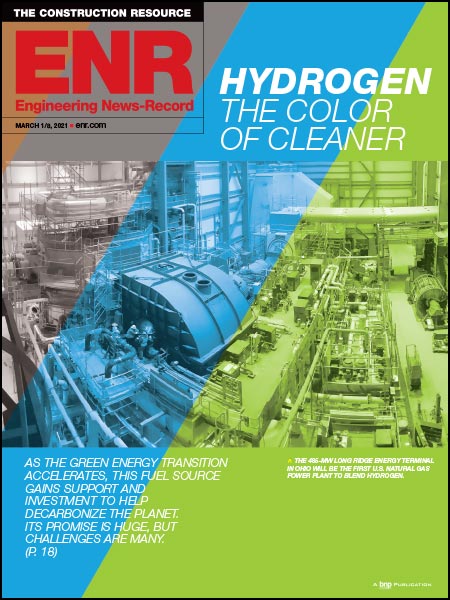
Owners of heavy-duty trucks, such as Class 8 dump trucks, concrete mixers and tractor trailers, report increasing quality problems due to the latest round of clean-diesel regulations, according to a study from J.D. Power and Associates released late last month.
Trucks that are one year old decreased in quality from the previous model year, says J.D. Power, which, like ENR, is a unit of the McGraw-Hill Cos. Problems rose 9% and are mostly related to engine and fuel components designed to reduce tailpipe emissions under U.S. Environmental Protection Agency rules.
"Following the revised EPA regulations in 2007, there was an increase in problems and a decline in customer satisfaction, and we anticipated the same thing would happen with the introduction of 2010 EPA-compliant engines," says Brent Gruber, director of J.D. Power's commercial vehicle practice. "The new, more complex engines are resulting in more problems and downtime."
Thad Pirtle, vice president and equipment manager for Evansville, Ind.-based contractor Traylor Bros., says the company has had little experience so far with the new trucks. However, he anticipates problems arising from incoming off-highway diesel equipment, such as bulldozers, cranes and loaders, that are now incorporating similar emissions devices, such as exhaust-gas recirculation (EGR), diesel-particulate filters (DPFs) and selective-catalytic-reduction (SCR) systems.
"We're not looking forward to it at all," he says. "We are bidding on a job right now, and just the DPFs alone are over $31,000 for each engine."
In an effort to avoid headaches associated with the new clean diesels, fleet owners are switching to gasoline power or other fuels when available, especially for smaller trucks. "We don't do diesel anymore," says Pirtle, referring to Traylor's fleet of Ford F-550 mechanics' trucks that it deploys to construction projects. "The loss of power is a lesser evil than having to mess with the DPFs and the urea. We can get by."
European truck makers in the Class 8 segment show improved quality over their American counterparts, notes the J.D. Power report. Regulations in Europe for the latest clean diesels went into effect in 2008, two years ahead of U.S. mandates. Manufacturers in Europe "have the advantage of applying technology proven in Europe in U.S. models," the study explains. Overall, U.S. truck brands experience 22% more engine and fuel problems than do European brands, the study finds.
Freightliner, a brand of Germany-based Daimler Group, earned the highest scores in satisfaction for both the vocational and on-highway segments. Volvo ranked second in the on-highway segment, and International ranked second in the vocational segment. Peterbilt ranked third in both categories. Kenworth ranked highest in dealer service.
Vocational truck owners experience an average of 2.2 unscheduled maintenance procedures per year, resulting in an average of seven days of downtime, the study adds.


